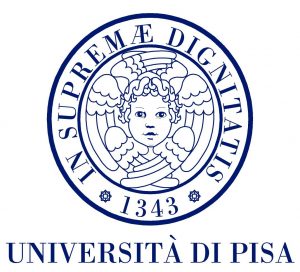The University of Pisa, founded in 1343, is among the oldest and most prestigious universities in Europe, with alumni such as Galilei, Volterra and Fermi.
The Research Centre “Enrico Piaggio”, founded in 1962 and recently promoted to the status of Centro di Ateneo, organises interdisciplinary research among engineering, medicine, and biological scientists towards applications in Bioengineering and Robotics. Centre “E. Piaggio” has a longstanding experience in managing contracts with international, EC, and industrial partners, and currently hires four professional project managers. The Robotics Group of the Research Centre “Enrico Piaggio” focuses on robotics and embedded automation. The group is among the originators of the modern approach to physical human-robot interaction, where it has been advocating intrinsic safety via the codesign of mechanics and control, oriented towards performance maximization within rigid safety constraints. Particular attention has been focused on the study of hands and haptics since at least 20 years. Recent work has proposed a synergy-based approach to hand design and control for grasp and manipulation that is producing interesting results from both a theoretic and a design point of view.
Key people
- Paolo Salaris, principal investigator and work package leader (WP4)
- Antonio Bicchi, senior researcher
- Lucia Pallottino, senior researcher
- Manolo Garabini, senior researcher
- Manuel Giuseppe Catalano, senior researcher
- Giorgio Grioli, senior researcher
- Matteo Bianchi, senior researcher
- Alessandro Palleschi, senior researcher
- Marco Baracca, PhD student
- Olga Napolitano, PhD student
- Elena Stracca, PhD student
- Giorgio Simonini, PhD student
- Elisa Stefanini, PhD student
- Simone Tolomei, PhD student
- Stefano Angeli, Engineer
- Vincenzo De Giacomo, Engineer
- Somoza Octavi, Engineer
Role in the project
The University of Pisa will significantly contribute on the whole design of real time motion planning and control for robotic grasping and manipulation. Another central task is the design of a general-purpose gripper for the grasping and manipulation of the objects envisaged in DARKO. The University of Pisa will also contribute to the problem of planning in the risk space by closely working with ACT-OR in WP7.

